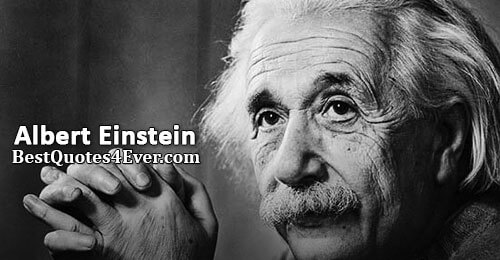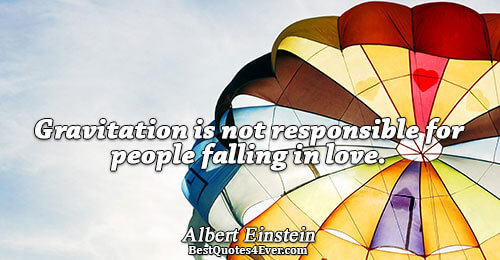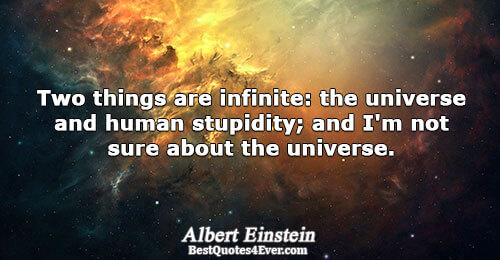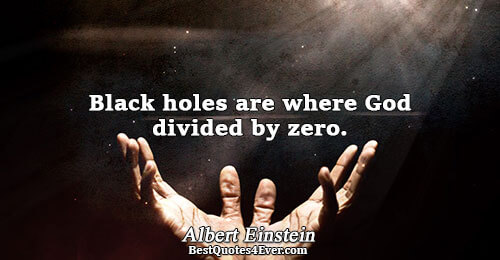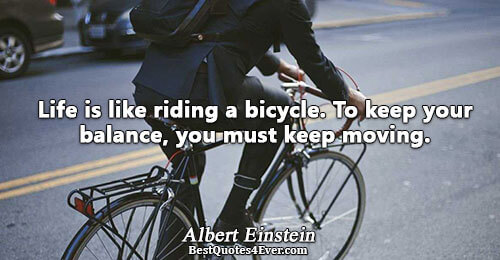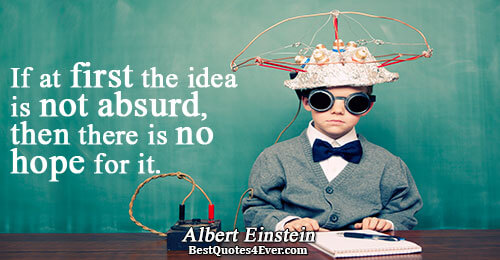Biography
Type: Physicist
Born: 14 March 1879
Died: 18 April 1955
Albert Einstein, (born March 14, 1879, Ulm, Württemberg, Germany—died April 18, 1955, Princeton, New Jersey, U.S.), German-born physicist who developed the special and general theories of relativity and won the Nobel Prize for Physics in 1921 for his explanation of the photoelectric effect. Einstein is generally considered the most influential physicist of the 20th century.
Near the beginning of his career, Einstein thought that Newtonian mechanics was no longer enough to reconcile the laws of classical mechanics with the laws of the electromagnetic field. This led to the development of his special theory of relativity. He realized, however, that the principle of relativity could also be extended to gravitational fields, and with his subsequent theory of gravitation in 1916, he published a paper on general relativity. He continued to deal with problems of statistical mechanics and quantum theory, which led to his explanations of particle theory and the motion of molecules. He also investigated the thermal properties of light which laid the foundation of the photon theory of light. In 1917, Einstein applied the general theory of relativity to model the large-scale structure of the universe.
He was visiting the United States when Adolf Hitler came to power in 1933 and, being Jewish, did not go back to Germany, where he had been a professor at the Berlin Academy of Sciences. He settled in the U.S., becoming an American citizen in 1940. On the eve of World War II, he endorsed a letter to President Franklin D. Roosevelt alerting him to the potential development of "extremely powerful bombs of a new type" and recommending that the U.S. begin similar research. This eventually led to what would become the Manhattan Project. Einstein supported defending the Allied forces, but largely denounced the idea of using the newly discovered nuclear fission as a weapon. Later, with the British philosopher Bertrand Russell, Einstein signed the Russell–Einstein Manifesto, which highlighted the danger of nuclear weapons. Einstein was affiliated with the Institute for Advanced Study in Princeton, New Jersey, until his death in 1955.
Einstein published more than 300 scientific papers along with over 150 non-scientific works. On 5 December 2014, universities and archives announced the release of Einstein's papers, comprising more than 30,000 unique documents. Einstein's intellectual achievements and originality have made the word "Einstein" synonymous with "genius".
Einstein found love, as well as education, at Zurich Polytechnic. Einstein's parents did not approve of Mileva Maric, a fellow student, because she was a Serb and she was not Jewish. In 1902 Einstein and Maric had a daughter, Lieserl, whose fate is uncertain - she either died of scarlet fever or was given up for adoption. The couple married in 1903 and eventually had two sons, Hans Albert and Eduard.
Some say that Mileva Maric played an important role in the development of Einstein's theories. Whether that is true or not, in 1919 their marriage ended in divorce. As part of their divorce settlement, Einstein promised to give Maric any money he might receive in the future for winning a Nobel Prize.
The Nobel Prize
Two years after his divorce from Maric, Einstein won the Nobel Prize. As stipulated, he gave the prize money to his ex-wife. By this time, Einstein had a new wife.
Einstein received the 1921 Nobel Prize in Physics, not for his Theory of Relativity, as is commonly assumed, but for his Law of Photoelectric Effect - perhaps because the Theory of Relativity was too controversial at than time.
In some sense, Einstein, instead of being a relic, may have been too far ahead of his time. The strong force, a major piece of any unified field theory, was still a total mystery in Einstein’s lifetime. Only in the 1970s and ’80s did physicists begin to unravel the secret of the strong force with the quark model. Nevertheless, Einstein’s work continues to win Nobel Prizes for succeeding physicists. In 1993 a Noble Prize was awarded to the discoverers of gravitation waves, predicted by Einstein. In 1995 a Nobel Prize was awarded to the discoverers of Bose-Einstein condensates (a new form of matter that can occur at extremely low temperatures). Known black holes now number in the thousands. New generations of space satellites have continued to verify the cosmology of Einstein. And many leading physicists are trying to finish Einstein’s ultimate dream of a “theory of everything.”
Nobel Prize winner Albert Einstein’s journey in the world did not end at his death in at age 76 in 1955; in some ways it had just begun. When the physicist died, pathologist Thomas Harvey, MD, autopsied the body and removed Einstein’s brain without the family’s permission. Dr. Harvey eventually received permission to keep the brain, but only on the condition that it be used for scientific research.
The scientists concluded that the greater number of glial cells per neuron might indicate the neurons in Einstein's brain had an increased "metabolic need" - they needed and used more energy. More recently, other researchers have noticed differences in glial cells (e.g., larger astrocytic process) in Einstein's brain. In this way, perhaps Einstein had better thinking abilities and conceptual skills.

